RAINWATER SYSTEM INSTALLATION GUIDE
You can use guttering and roofing materials from Rollsec, including downpipes, corrugated roof sheets, fascia, flashings, and fasteners, in order to design and install a useful rainwater system. The Building Code of Australia has requirements for the disposal of surface water under Australian Standards AS/NZS 3500.3 (2003), and AS/NZS 3500.5 (2000). See our Overflow Solutions Guide for more information.
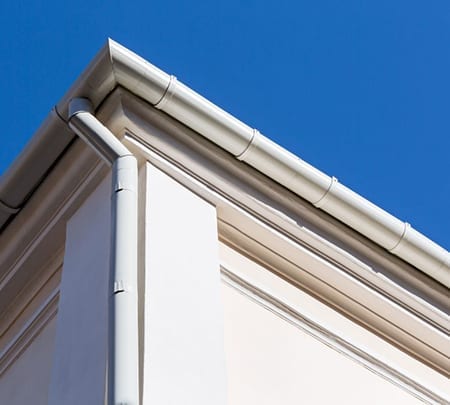
Roofing Materials for Your Rainwater System
There are many different components that make up a rainwater system, with each having their own purpose. The main components are as follows:
Gutters
Gutters reroute rainfall from a roof onto the ground or into a rainwater collection tank. Gutters come in a variety of shapes and sizes, depending on many factors related to drainage systems. Many residential homes commonly use either quad gutters or squareline gutters. Low front quad gutters are a simple design, cost effective and a very popular choice among homeowners today. Hi-front quad gutters or squareline gutters block the roofline and include overflow holes to allow effective drainage and prevent water from entering your roof.
For high rainwater carrying capacity, try our 125 Squareline gutter or our 175 Quad gutter. Our 125 Squareline gutter has a high front and a square shape with overflow slots. The 175 Quad gutter is a larger version of the popular 150 Quad which offers a greater amount of space without the need for overflow slots.
To prevent build-up ensure that you keep up your gutter maintenance and have your gutters cleaned once every three months to avoid blocked gutters from leaf debris.
Gutters can be made to custom fit a roof, and can come in colours that match your corrugated steel.
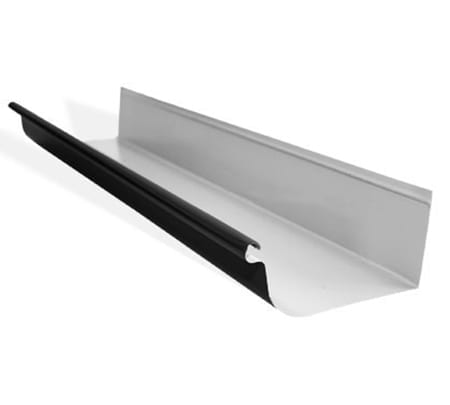
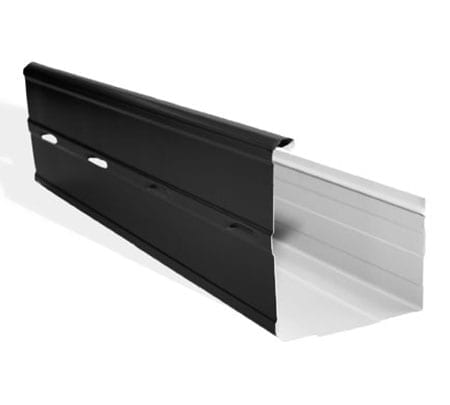
Gutter Accessories
You will need a variety of gutter accessories to go with your gutter. These will include stop ends, brackets, downpipe drops, sometime external or internal corners and products used to put it all together such as silicone, rivets and touch up paint.
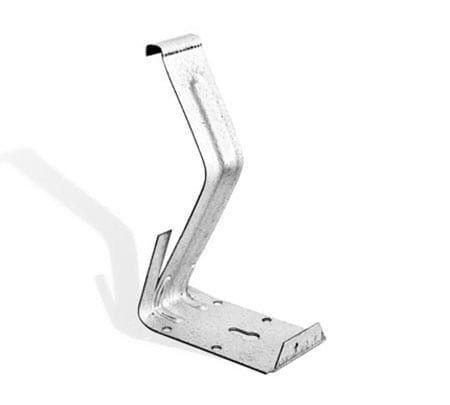
Downpipes & Accessories
Downpipes should be compatible with your steel roofing materials. They are either round or rectangular, and require some of the following accessories for secure function: pop rivets, nozzles/drops, brackets, adjustable downpipe offsets, and elbows.
Downpipes are either circular or rectangular. Round downpipes should fill the area of the gutter at an equal size, while square or rectangular downpipes may be up to 20% smaller than the gutter area. Square downpipes are used to sit flush against a wall, and are usually 100mm x 75mm. For information about installation of downpipes, refer to Australian Standards — Installation Code for Metal Roofing and Wall Cladding SAA HB39-1997.
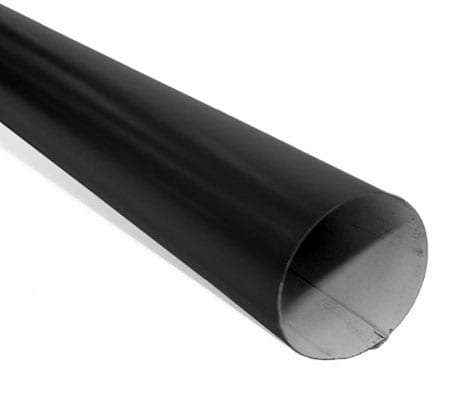
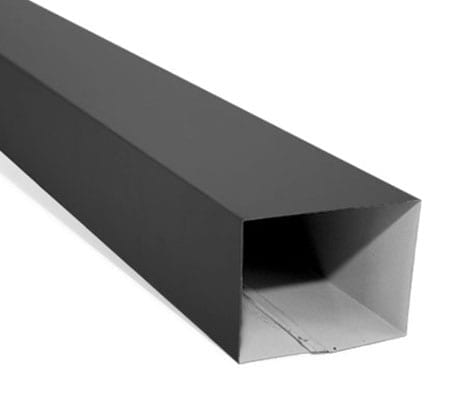
Rainwater Heads
A rainwater head is a small cistern that sits at the top of the downpipe and is used to collect rainwater from a gutter. These can be custom designed or ornamented to match your building’s aesthetic. Rainwater heads may be round, square, tapered, or pyramidal.
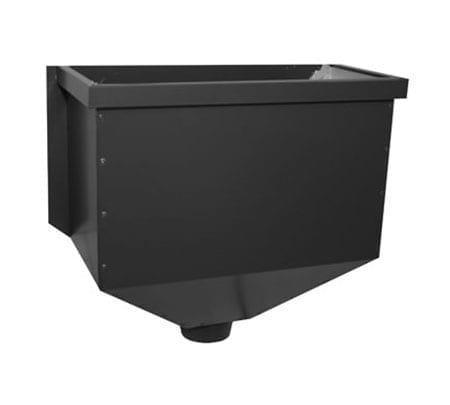
Installation and Maintenance for Your Rainwater System
Fall
One of the most important considerations for rainwater systems is the fall, or the angle at which water falls away from the roof. Install gutters with a steep fall if possible, which also helps prolong the life of the gutter.
Brackets
Space out your gutter brackets to be adjacent and spaced equally to fascia brackets. Spacing should be at least 600mm and at most 1200mm.
Maintenance
After installation, gutters should be cleaned from debris once every three months. Take into consideration risk management, such as securing ladders and only cleaning in good weather.
Your rainwater system should be installed by a licensed professional following the current building standards.
